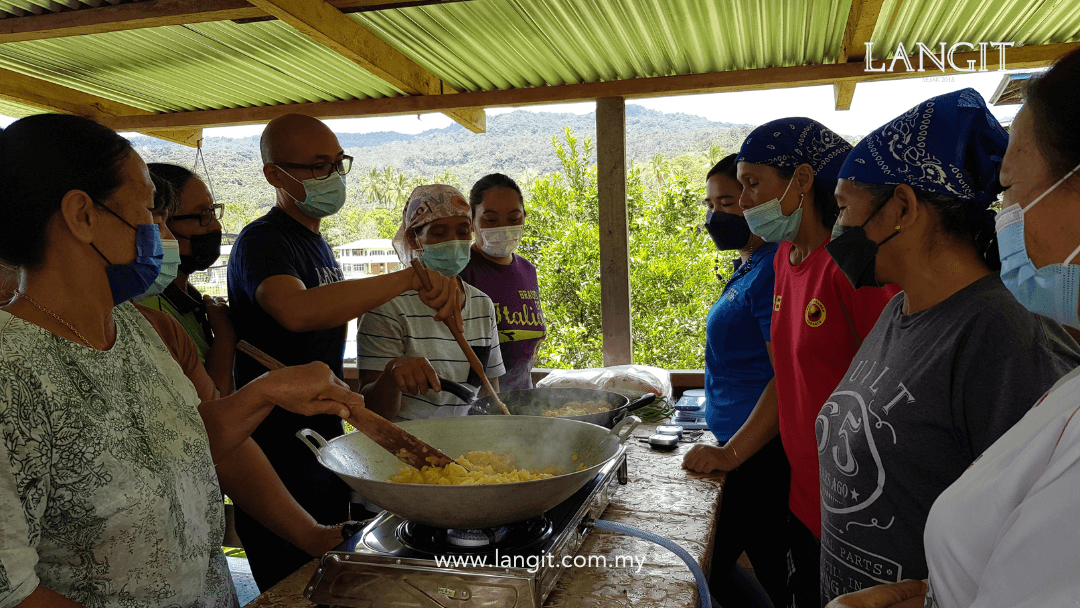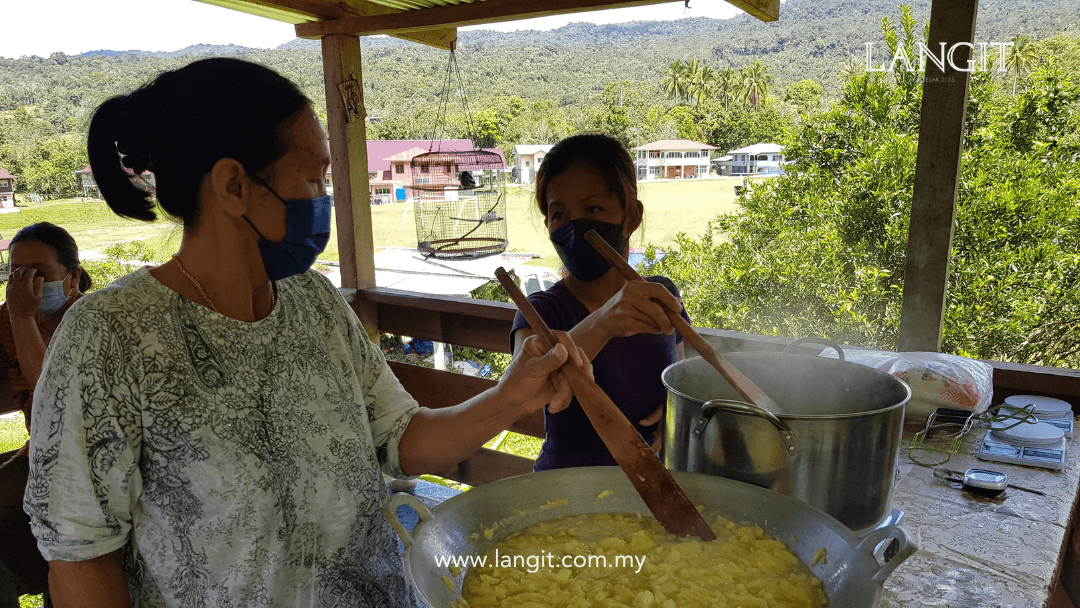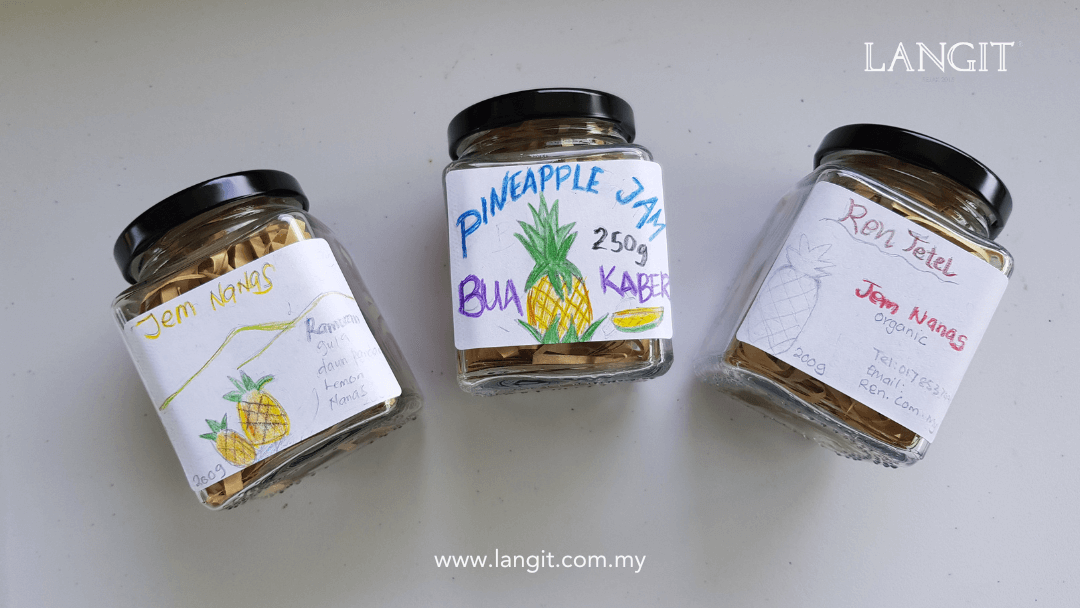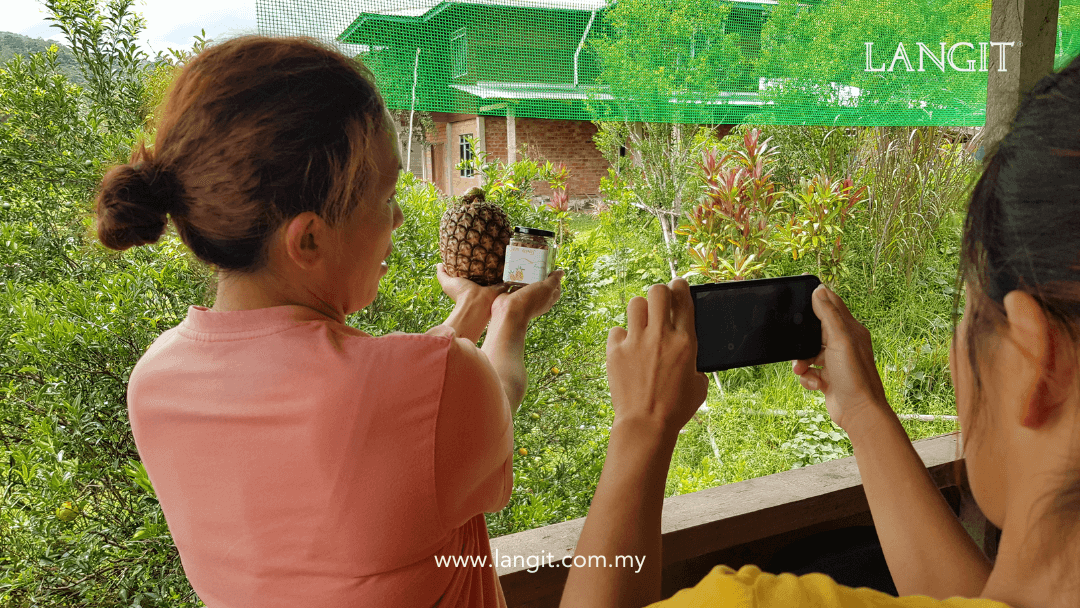
What are the potentials of a crop for farming communities that grow them? More so, when their over abundance leads to excess? These are the questions we face all the time when we meet rural communities who grow delicious, high quality crops but often can't reap the entirety of its goodness. They often miss out on opportunities to improve their own livelihoods using what they already have due to various barriers and challenges.
With the support of the GEF SGP UNDP Grant program and our partners at Yellow Tree, we designed and piloted Langit’s Agribusiness Incubator Program earlier this year. With customised learning modules, we delivered new knowledge and solutions for our farmers to consider and plan for their new cottage product - pineapple jams!
Part 1: Basics of a good product

The first part of our program took place in March 2022 with an intimate group of women farmers from Kampung Puneng Trusan, in Sarawak. This beautiful village is home to the finest Sarawak Paun pineapples one can ever taste. However, their bountiful harvest sometimes leads to wastage due to the lack of preservation technique or added value products that can be made from the fresh fruits. Using pineapple jam making as a potential income source and core learning, we delivered modules on:
Hygienic jam making process, canning and natural preservation.
Financial recordings as best practice
Product costs and calculations.

The first session was filled with fun, laughter, lots of questions and not forgetting the head scratching moments when we had to crunch numbers with the ladies. Numbers are definitely not their favourite topic.
Part 2: Building a product for market
In May, we returned to the village for part 2 of the workshop with our farmers. Now that they’ve learnt the basics of producing good quality pineapple jam, we proceeded to address the activities that they find the most challenging - bringing products to market.
The next 2 modules addresses these topics:
Branding - that includes the most basics of design and labelling.
Selling their product by optimising their existing networks and social media.

In the second session, we also created a small market study experience in the village as it wasn’t possible to bring the ladies out to town. They had a great time playing critics to products, learning from market products as well as tasting them. It provided them an opportunity to learn to judge on taste, quality and presentation.
Throughout the two sessions, we were able to truly understand the ladies' concerns, break down their myths and provide them with ideas which are actionable steps that are not as intimidating as they once thought of.

This pilot agribusiness program provided us with alot of learning, iteration and adaption when it comes to adjusting the delivery of knowledge to fit our learners needs. We are encouraged with their positive feedback and hopefully, we’ll be able to see some new products coming out from the village soon!
When designing livelihood workshops, it can be an overpromise to think that anyone can be an entrepreneur. What we missed out in community or rural communities settings are the real gaps that exist in knowledge, maturity and most times the lack of infrastructure connectivities in their environment. All these factors pose different challenges that make an entrepreneurial journey much tougher than one can grasp. The key then, is to learn as much as possible about the community’s ecosystem and design a custom learning and solution for them. A one size fits all formula does not bring anyone forward.
Catch a glimpse of what took place during the workshop through this video:
We look forward to partner and deliver meaningful learning and development experiences ahead. If you’re interested to learn more, get in touch with us via hello@langit.com.my
